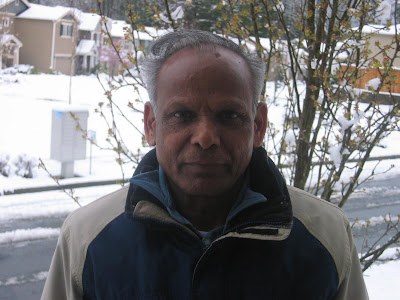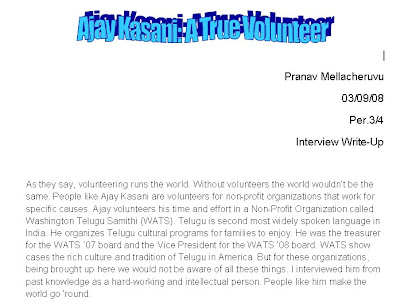



 Of all the things I wear, my expression is the most important.
Of all the things I wear, my expression is the most important.  The best vitamin for making friends.... B1.
The best vitamin for making friends.... B1.  The happiness of my life depends on the quality of my thoughts.
The happiness of my life depends on the quality of my thoughts.  The heaviest thing I can carry is a grudge.
The heaviest thing I can carry is a grudge.  One thing I can give and still keep...is my word.
One thing I can give and still keep...is my word.  The pursuit of happiness is the chase of a lifetime! It is never too late to become what I might have been.
The pursuit of happiness is the chase of a lifetime! It is never too late to become what I might have been.  Friends are like balloons; once you let them go, you might not get them back. Sometimes we get so busy with our own lives and problems that we may not even notice that we've let them fly away. Sometimes we just don't realize what real friendship means until it is too late. I don't want to let that happen so I'm gonna tie you to my heart so I never lose you.
Friends are like balloons; once you let them go, you might not get them back. Sometimes we get so busy with our own lives and problems that we may not even notice that we've let them fly away. Sometimes we just don't realize what real friendship means until it is too late. I don't want to let that happen so I'm gonna tie you to my heart so I never lose you.  But when Microsoft’s Zoila Haro visited Cascade Middle School in Seattle recently,
But when Microsoft’s Zoila Haro visited Cascade Middle School in Seattle recently,
 Dear Children, Good Afternoon.
Dear Children, Good Afternoon. Canada was created through discussion, negotiation, and compromise. These characteristics are as important today as in the past. Canadians let people live as they wish, as long as they do not limit how others live. Canadians work hard to nourish a peaceful society in which respect for cultural differences, equality, liberty and freedom of expression is fundamental value.
Canada was created through discussion, negotiation, and compromise. These characteristics are as important today as in the past. Canadians let people live as they wish, as long as they do not limit how others live. Canadians work hard to nourish a peaceful society in which respect for cultural differences, equality, liberty and freedom of expression is fundamental value. Dear Children,
Dear Children, Dear Children, Good Morning. How are you?
Dear Children, Good Morning. How are you?
 The following is the text as prepared for delivery of Senator Barack Obama’s speech on race in Philadelphia, as provided by his presidential campaign. This is an excerpt from "The New York Times".
The following is the text as prepared for delivery of Senator Barack Obama’s speech on race in Philadelphia, as provided by his presidential campaign. This is an excerpt from "The New York Times".
 Dear Children, Good Morning.
Dear Children, Good Morning.




 March 15, 2008
March 15, 2008Best Wishes For a Happy PATRICK’S DAY!
Somayya Kasani
# 72 120 Magrath Road NW
Edmonton, Alberta T6R 0C6


The crisis of today is the joke of tomorrow. We wish you all the best.
With Love,
Amma-Naana



